jward
passin' thru
U.S. intelligence shows Iran threats on U.S. soil, but Blinken and Schiff say this shouldn't derail new nuclear deal
By Margaret Brennan
Updated on: March 12, 2022 / 1:28 PM / CBS News
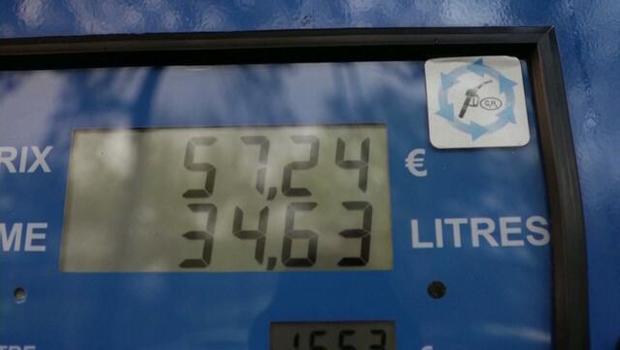
The U.S. intelligence community has assessed that Iran will threaten Americans — both directly and via proxy attacks — and that Tehran remains committed to developing networks inside the U.S., according to the intelligence community's 2022 Annual Threat Assessment, published Tuesday by the Office of the Director of National Intelligence (ODNI).
Now, with the U.S. on the cusp of a diplomatic accord with Iran over its nuclear program, as well as a potential deal regarding the release of four American prisoners, it is not clear whether the Biden administration can extract any further concessions or convince Tehran to cease its other malign activities, including any on U.S. soil.
CBS News has obtained two persistent threat assessments submitted to Congress by the State Department in January 2022 which cited a "serious and credible threat" on the lives of former Secretary of State Mike Pompeo and former Trump administration Iran envoy Brian Hook. These non-public assessments show that throughout 2021, and again in 2022, the State Department assessed the need to provide round-the-clock, U.S.-taxpayer funded diplomatic security details to both men.
Click here to view related media.
According to another report marked sensitive but unclassified and obtained by CBS News, U.S. taxpayers are paying more than $2 million a month to protect Pompeo and Hook. The projected costs include vehicle and travel costs as well as salary and pay for the agents working for the State Department's Bureau of Diplomatic Security. The document was first reported by The Associated Press.
The hefty security entourage that continues to travel with Pompeo, a potential 2024 Republican presidential candidate, has garnered attention during his public appearances including at the recent Conservative Political Action Conference (CPAC). The size of the detail rivals one that is typical for a current cabinet member.
The most recent threat assessment signed by Deputy Secretary of State for Management and Resources Brian McKeon cites a determination made as of July 16, 2021 that Pompeo faced such threats "from a foreign power or the agent of a foreign power." McKeon also said he had determined on at least three occasions that a specific threat to former envoy Hook required security, most recently in November 2021.
Two current and three former U.S. officials confirmed that Iran is the foreign actor, but details of the specific threats were not described in the assessments provided to Congress. The Free Beacon first reported the existence of the non-public threat assessment.
The FBI also thwarted an Iranian intelligence network plot to kidnap New York-based journalist Maseh Alinejad, and Tehran is threatening current U.S. officials, which was acknowledged publicly by the intelligence community on Tuesday. The ODNI report said that the threat to current officials was in retaliation for the U.S. drone strike that killed Iran's most powerful military general, Commander Qasem Soleimani, in January 2020, and that Iran "has previously attempted to conduct lethal operations in the United States."
On "Face the Nation" this past Sunday, Secretary of State Antony Blinken sidestepped a question about whether a renewed diplomatic agreement with Iran regarding its nuclear program would also address threats on U.S. soil, including any targeting his predecessor, Mike Pompeo, who was secretary of state when the assassination strike against Soleimani took place. Blinken instead addressed the broad threat posed to U.S. personnel from Iranian malign actors, saying, "We will stand and act against those every single day."
The secretary has previously said that Iran is weeks away from obtaining enough fissile material for a nuclear bomb, hence the U.S. attempts to revive the 2015 international agreement known as the Joint Comprehensive Plan of Action (JCPOA), which would lift sanctions on Iran in exchange for a temporary cap on its nuclear development. President Trump exited the JCPOA in 2018 by sanctioning Iran, and in July 2019, Iran began nuclear-related activities that exceeded limits of that agreement. The intelligence community assesses that if Iran does not win sanctions relief, then it will proceed with enriching nuclear fuel to weapons grade material.
"We were very clear when we were in the deal originally that nothing about the deal prevents us from taking action against Iran when it's engaged in actions that threaten us, threaten our allies and partners. That will very much continue," Blinken said.
House Intelligence Committee Chair Adam Schiff agrees that the threats do not have to be addressed in any renewed nuclear-related deal with Iran.
"These other malign activities of Iran's, their plots against the U.S. personnel or Americans around the world we can deal with and have to deal with separately, and we should deal with them aggressively," Schiff told CBS News' "Face the Nation" on Sunday. "We need to go after all of this, not necessarily in one agreement."
The Biden administration has been explicit about its commitment to one specific issue outside the parameters of Iran's nuclear program, though, and that is the fate of four Americans imprisoned in Iran. Last month, U.S. Special Envoy for Iran Robert Malley told Reuters that a nuclear deal is unlikely without their release. Iran has insisted on the unfreezing of billions of dollars in state assets sitting in bank accounts in U.S. ally South Korea in exchange for the release of imprisoned Westerners.
Iran: Crisis In The Middle East

U.S. sanctions Iranians after ballistic missile strikes in Iraq, Gulf states

Israel hosts Blinken, top Arab diplomats as Mideast dynamic shifts

Iran releases 2 British citizens jailed for over 5 years

After missile strike, Iran says it won't tolerate "threats" from Iraq
More
Margaret Brennan
Margaret Brennan is moderator of CBS News' "Face The Nation" and CBS News' senior foreign affairs correspondent based in Washington, D.C.
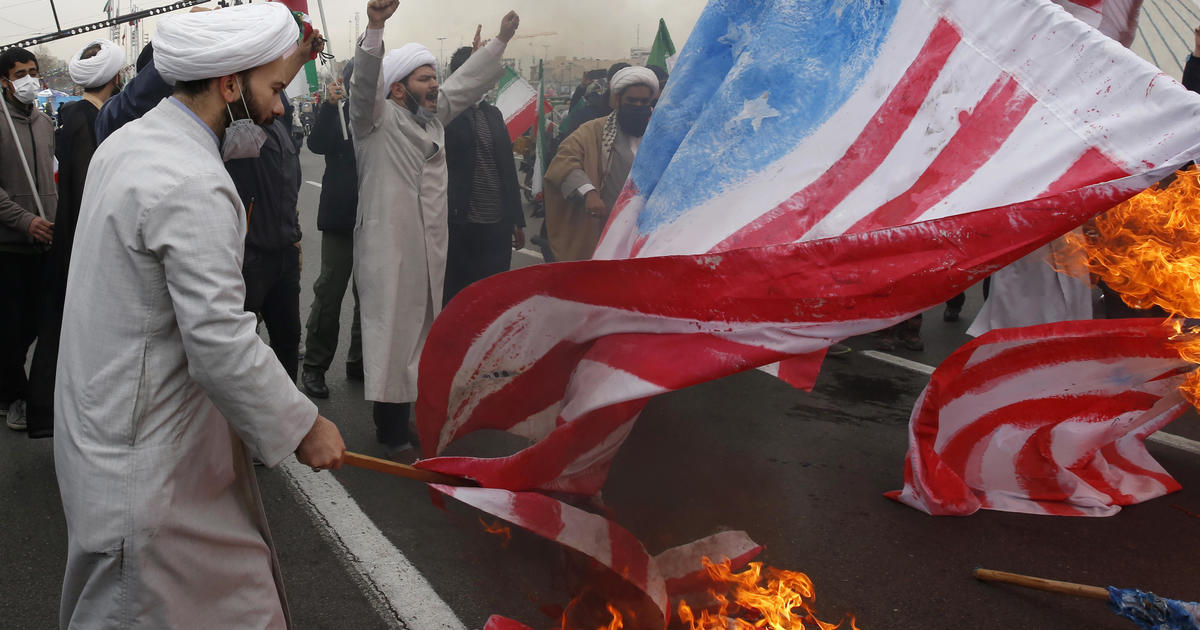
 www.cbsnews.com
www.cbsnews.com
By Margaret Brennan
Updated on: March 12, 2022 / 1:28 PM / CBS News

The U.S. intelligence community has assessed that Iran will threaten Americans — both directly and via proxy attacks — and that Tehran remains committed to developing networks inside the U.S., according to the intelligence community's 2022 Annual Threat Assessment, published Tuesday by the Office of the Director of National Intelligence (ODNI).
Now, with the U.S. on the cusp of a diplomatic accord with Iran over its nuclear program, as well as a potential deal regarding the release of four American prisoners, it is not clear whether the Biden administration can extract any further concessions or convince Tehran to cease its other malign activities, including any on U.S. soil.
CBS News has obtained two persistent threat assessments submitted to Congress by the State Department in January 2022 which cited a "serious and credible threat" on the lives of former Secretary of State Mike Pompeo and former Trump administration Iran envoy Brian Hook. These non-public assessments show that throughout 2021, and again in 2022, the State Department assessed the need to provide round-the-clock, U.S.-taxpayer funded diplomatic security details to both men.
Click here to view related media.
According to another report marked sensitive but unclassified and obtained by CBS News, U.S. taxpayers are paying more than $2 million a month to protect Pompeo and Hook. The projected costs include vehicle and travel costs as well as salary and pay for the agents working for the State Department's Bureau of Diplomatic Security. The document was first reported by The Associated Press.
The hefty security entourage that continues to travel with Pompeo, a potential 2024 Republican presidential candidate, has garnered attention during his public appearances including at the recent Conservative Political Action Conference (CPAC). The size of the detail rivals one that is typical for a current cabinet member.
The most recent threat assessment signed by Deputy Secretary of State for Management and Resources Brian McKeon cites a determination made as of July 16, 2021 that Pompeo faced such threats "from a foreign power or the agent of a foreign power." McKeon also said he had determined on at least three occasions that a specific threat to former envoy Hook required security, most recently in November 2021.
Two current and three former U.S. officials confirmed that Iran is the foreign actor, but details of the specific threats were not described in the assessments provided to Congress. The Free Beacon first reported the existence of the non-public threat assessment.
The FBI also thwarted an Iranian intelligence network plot to kidnap New York-based journalist Maseh Alinejad, and Tehran is threatening current U.S. officials, which was acknowledged publicly by the intelligence community on Tuesday. The ODNI report said that the threat to current officials was in retaliation for the U.S. drone strike that killed Iran's most powerful military general, Commander Qasem Soleimani, in January 2020, and that Iran "has previously attempted to conduct lethal operations in the United States."
On "Face the Nation" this past Sunday, Secretary of State Antony Blinken sidestepped a question about whether a renewed diplomatic agreement with Iran regarding its nuclear program would also address threats on U.S. soil, including any targeting his predecessor, Mike Pompeo, who was secretary of state when the assassination strike against Soleimani took place. Blinken instead addressed the broad threat posed to U.S. personnel from Iranian malign actors, saying, "We will stand and act against those every single day."
The secretary has previously said that Iran is weeks away from obtaining enough fissile material for a nuclear bomb, hence the U.S. attempts to revive the 2015 international agreement known as the Joint Comprehensive Plan of Action (JCPOA), which would lift sanctions on Iran in exchange for a temporary cap on its nuclear development. President Trump exited the JCPOA in 2018 by sanctioning Iran, and in July 2019, Iran began nuclear-related activities that exceeded limits of that agreement. The intelligence community assesses that if Iran does not win sanctions relief, then it will proceed with enriching nuclear fuel to weapons grade material.
"We were very clear when we were in the deal originally that nothing about the deal prevents us from taking action against Iran when it's engaged in actions that threaten us, threaten our allies and partners. That will very much continue," Blinken said.
House Intelligence Committee Chair Adam Schiff agrees that the threats do not have to be addressed in any renewed nuclear-related deal with Iran.
"These other malign activities of Iran's, their plots against the U.S. personnel or Americans around the world we can deal with and have to deal with separately, and we should deal with them aggressively," Schiff told CBS News' "Face the Nation" on Sunday. "We need to go after all of this, not necessarily in one agreement."
The Biden administration has been explicit about its commitment to one specific issue outside the parameters of Iran's nuclear program, though, and that is the fate of four Americans imprisoned in Iran. Last month, U.S. Special Envoy for Iran Robert Malley told Reuters that a nuclear deal is unlikely without their release. Iran has insisted on the unfreezing of billions of dollars in state assets sitting in bank accounts in U.S. ally South Korea in exchange for the release of imprisoned Westerners.
Iran: Crisis In The Middle East

U.S. sanctions Iranians after ballistic missile strikes in Iraq, Gulf states

Israel hosts Blinken, top Arab diplomats as Mideast dynamic shifts

Iran releases 2 British citizens jailed for over 5 years

After missile strike, Iran says it won't tolerate "threats" from Iraq
More
Margaret Brennan
Margaret Brennan is moderator of CBS News' "Face The Nation" and CBS News' senior foreign affairs correspondent based in Washington, D.C.

U.S. intelligence shows Iran threats on U.S. soil, but Blinken and Schiff say this shouldn't derail new nuclear deal
There are "serious and credible" threats to current and former U.S. officials, including against former Secretary of State Mike Pompeo.


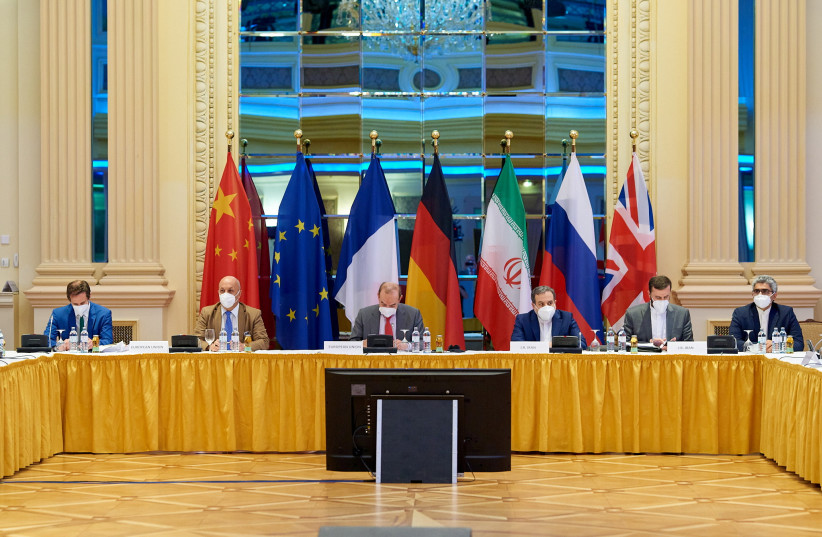
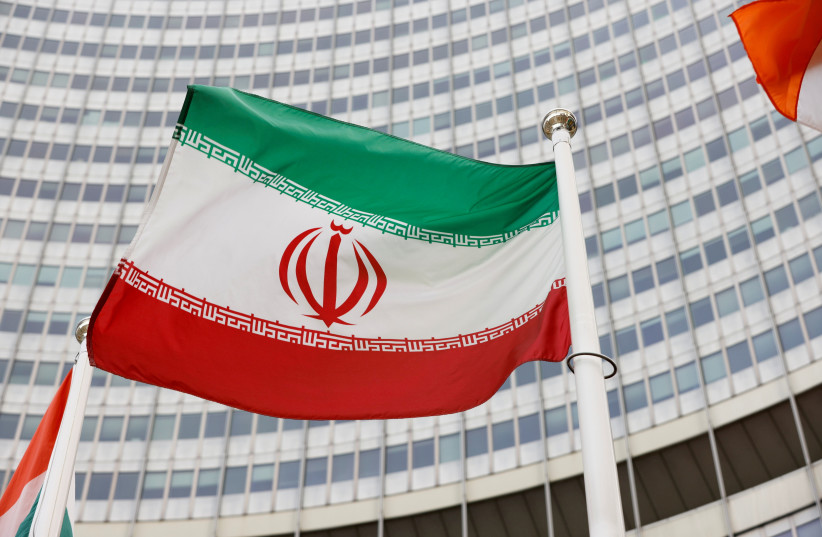

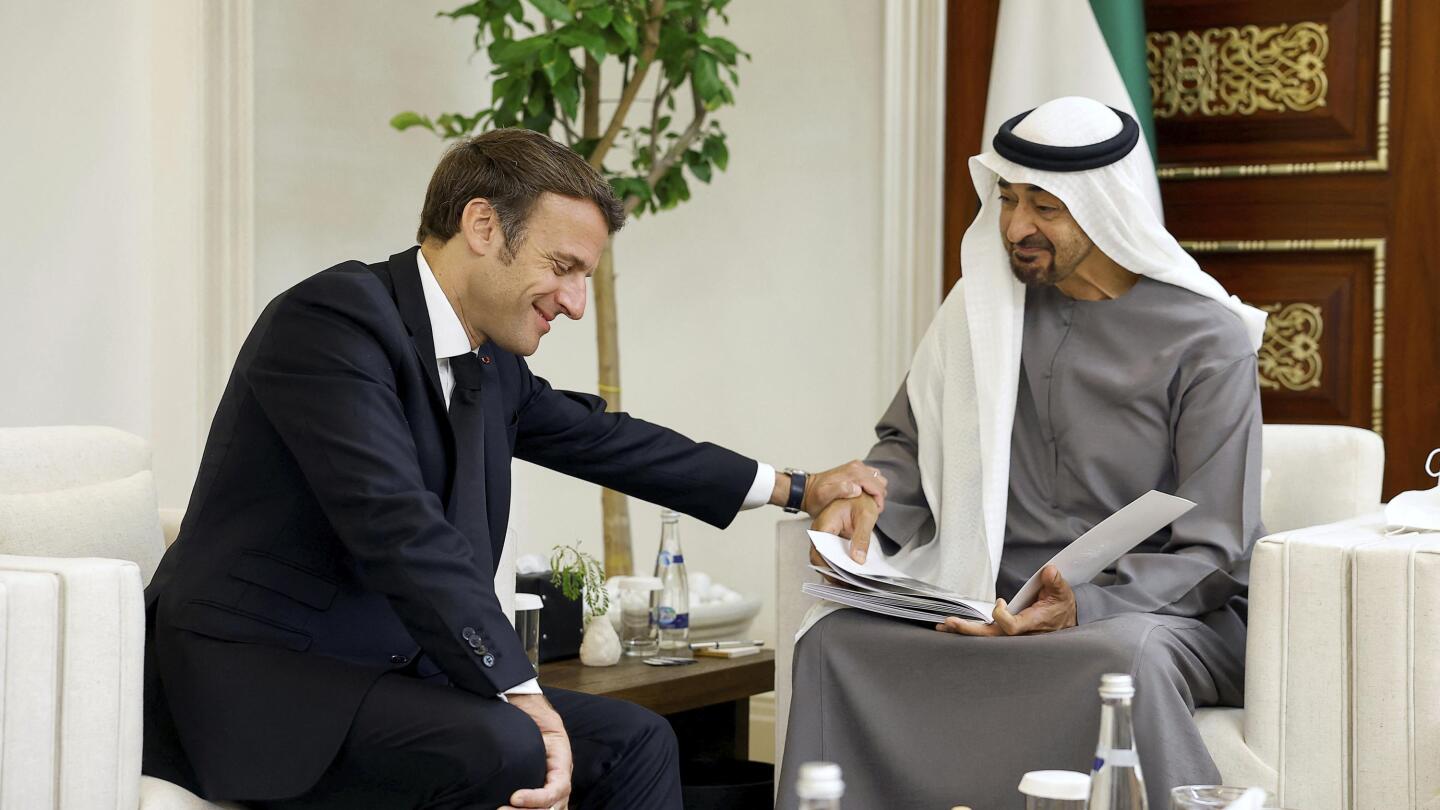

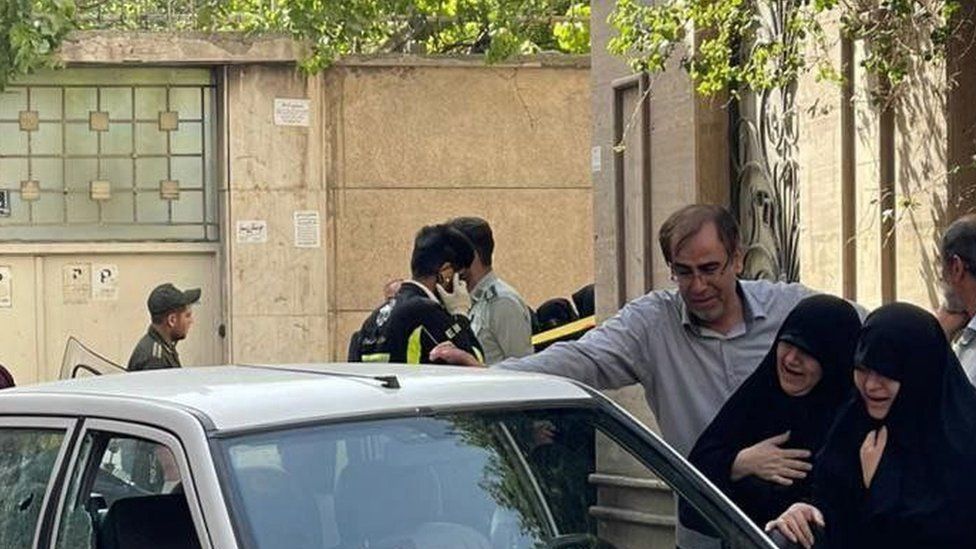
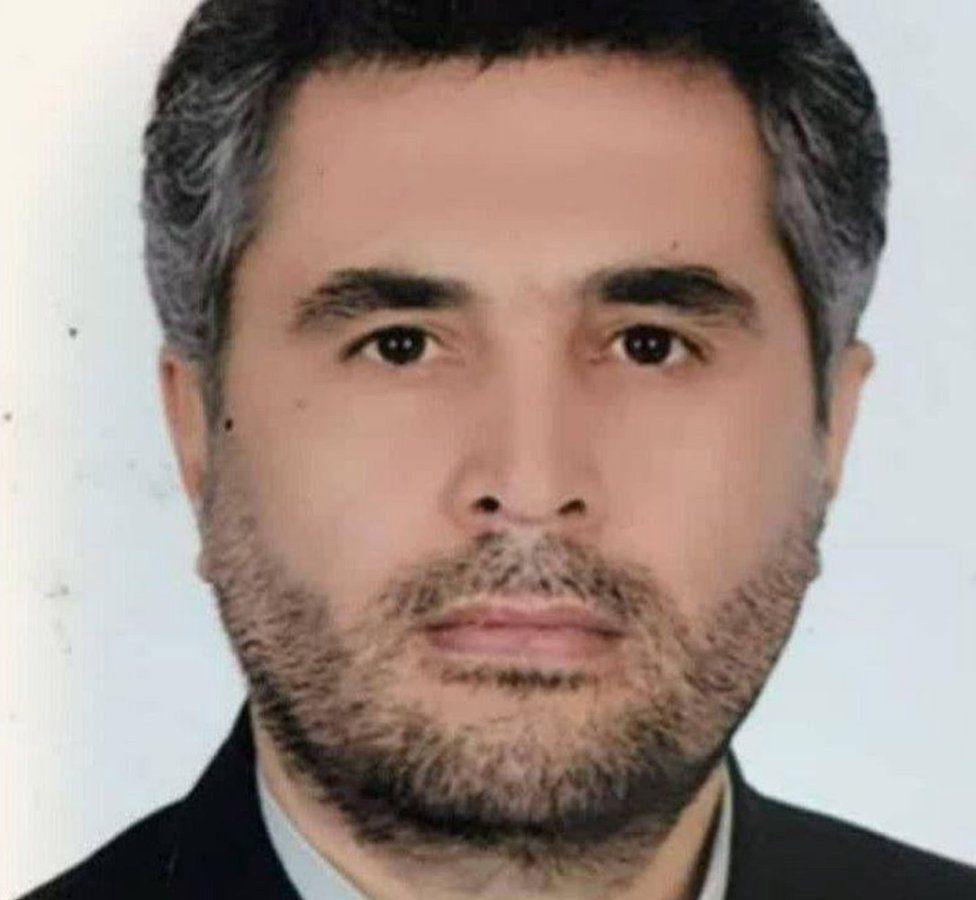

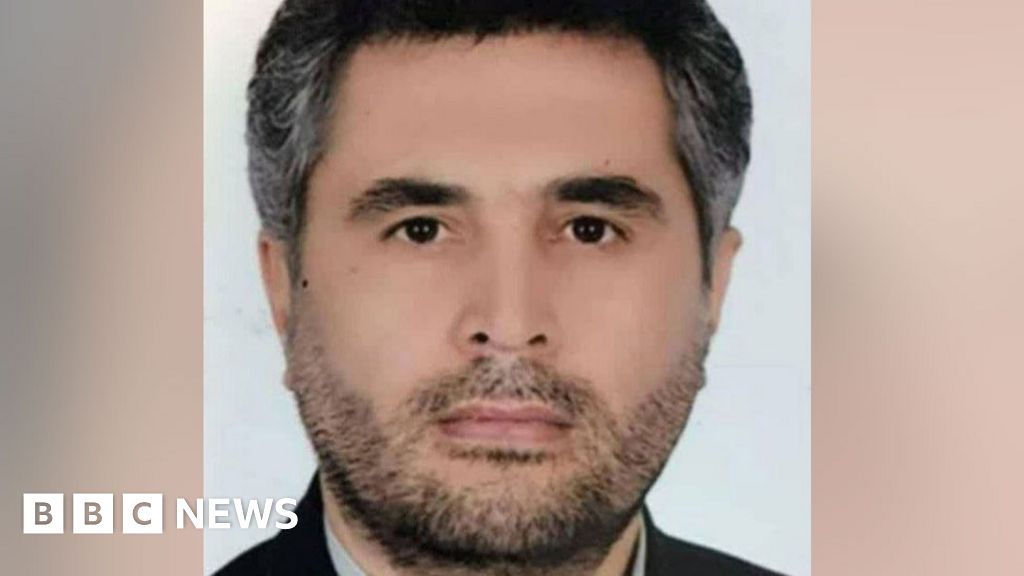

 . It is looking like one more theater of war is more and more likely. (And that's probably not going to be the only one in the near future)
. It is looking like one more theater of war is more and more likely. (And that's probably not going to be the only one in the near future)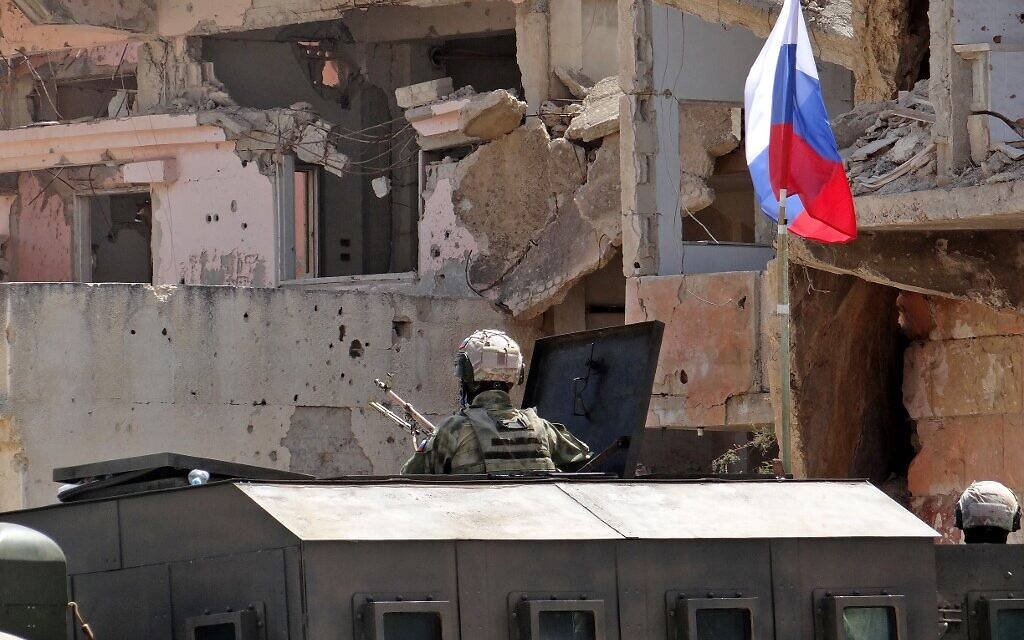
 @EndGameWW3
@EndGameWW3
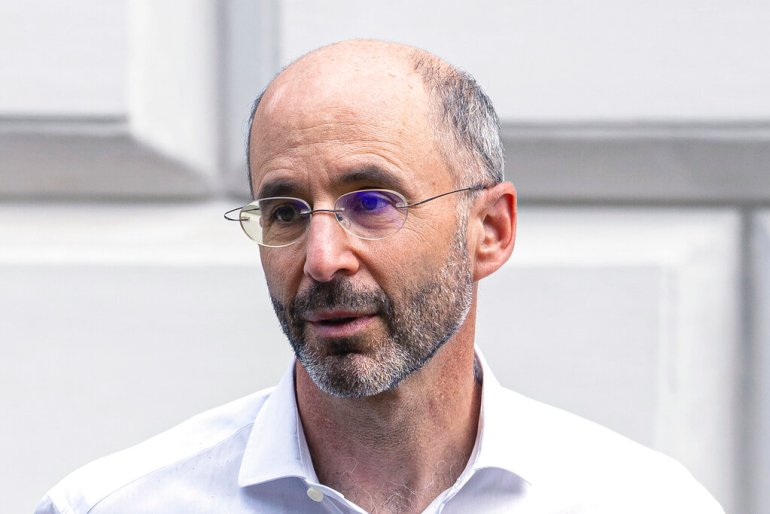


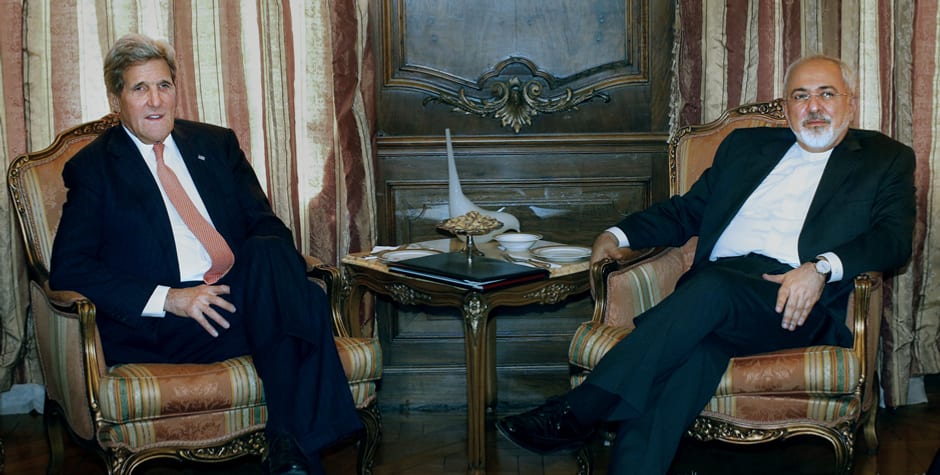




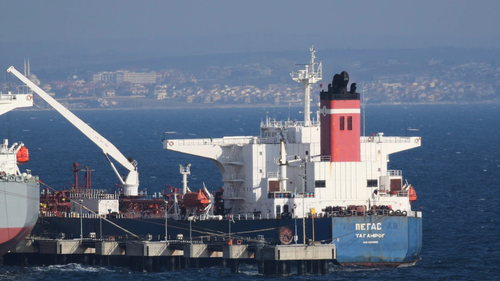 The Russian-flagged oil tanker Pegas previously shown off Turkey, via Reuters
The Russian-flagged oil tanker Pegas previously shown off Turkey, via Reuters


